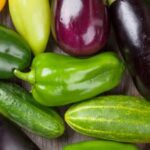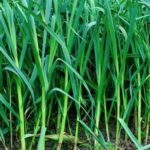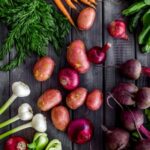North Carolina vegetable gardening has a deep-rooted connection to the state’s rich agricultural history. From the mountains to the coast, North Carolina’s diverse climate and soil make it an ideal place for growing a wide variety of vegetables. Whether you’re a seasoned gardener or just starting out, understanding the unique characteristics of North Carolina’s environment is crucial for successful vegetable gardening.
With its temperate climate and fertile land, North Carolina has long been a hub for agricultural production. The state’s agricultural heritage dates back centuries, and today, it continues to thrive with a strong focus on sustainable and organic practices. In this article, we will explore how you can make the most of North Carolina’s agricultural legacy by delving into the world of vegetable gardening.
When it comes to vegetable gardening in North Carolina, there are several factors to consider, from choosing the perfect location for your garden to understanding the climate and soil conditions. We will also highlight the best vegetables to grow in North Carolina and provide tips for organic and sustainable gardening practices.
Additionally, we’ll discuss how to deal with common pests and diseases that may affect your vegetable garden in this unique environment. Stay tuned as we embark on an exciting journey through North Carolina’s bountiful vegetable gardens.
Choosing the Perfect Location for Your Vegetable Garden in North Carolina
When it comes to North Carolina vegetable gardening, choosing the perfect location for your garden is crucial for the success of your crops. Here are some factors to consider when selecting the ideal spot for your vegetable garden in North Carolina:
1. Sunlight: Ensure that your chosen location receives at least 6-8 hours of direct sunlight each day. This is essential for the healthy growth of most vegetables, as they require ample sunlight to thrive.
2. Soil Quality: Consider the soil quality in your chosen location. North Carolina’s soil can vary from region to region, so it’s important to have a soil test done to determine its pH levels and nutrient content. Amend the soil as needed to ensure that it is fertile and well-draining for optimal plant growth.
3. Access to Water: Your vegetable garden should be located near a water source, whether it’s a hose or irrigation system, to make watering more convenient. Adequate water supply is essential for the wellbeing of your plants, especially during North Carolina’s hot and dry summers.
4. Protection from Wind and Pests: Choose a location that offers some natural protection from strong winds, which can damage delicate plants. Additionally, consider ways to protect your garden from common pests like deer and rabbits, such as installing fences or using natural repellents.
By carefully considering these factors when choosing the location for your North Carolina vegetable garden, you can set yourself up for a successful and bountiful harvest.
Understanding North Carolina’s Climate and Its Impact on Vegetable Gardening
North Carolina has a diverse climate that varies from the cooler mountains in the western part of the state to the warmer coastal plains in the east. This diverse climate can have a significant impact on vegetable gardening in North Carolina. Understanding these climatic variations is crucial for successful vegetable cultivation in the state.
In North Carolina, the western mountain region experiences cooler temperatures and shorter growing seasons compared to the central and eastern parts of the state. The USDA plant hardiness zones range from 6a to 8b, with the mountains being on the lower end of this scale and the coastal areas on the higher end.
The coastal plains and Piedmont regions of North Carolina have longer growing seasons and warmer temperatures, making it possible to grow a wider variety of vegetables compared to the mountainous regions. Understanding these differences in climate is essential for selecting suitable vegetable varieties and planning planting schedules in North Carolina vegetable gardening.
| Climate Region | USDA Plant Hardiness Zones |
|---|---|
| Mountains | 6a-7a |
| Piedmont & Coastal Plains | 7b-8b |
Best Vegetables to Grow in North Carolina’s Unique Climate and Soil
When it comes to vegetable gardening in North Carolina, it’s essential to choose the right vegetables that can thrive in the state’s unique climate and soil. Here are some of the best vegetables to grow in North Carolina:
- Tomatoes: North Carolina’s warm and humid climate is perfect for growing juicy and flavorful tomatoes. Whether you choose slicing tomatoes, cherry tomatoes, or heirloom varieties, make sure to provide them with ample sunlight and well-draining soil.
- Peppers: Bell peppers, hot peppers, and sweet peppers all do well in North Carolina’s climate. They enjoy plenty of sunshine and fertile soil. Be sure to watch out for pests such as aphids and caterpillars that may affect your pepper plants.
- Collard Greens: A popular staple in Southern cuisine, collard greens are well-suited for North Carolina’s growing conditions. They thrive in cooler weather and can withstand a bit of frost, making them an excellent choice for fall and winter harvests.
In addition to these vegetables, other suitable options for North Carolina vegetable gardening include cucumbers, squash, green beans, and okra. It’s important to consider the specific requirements of each vegetable when planning your garden. Taking into account factors such as sunlight exposure, water needs, soil pH levels, and potential pest threats will help ensure a successful harvest.
Remember that proper soil preparation and regular maintenance are crucial for a productive vegetable garden in North Carolina. By selecting the right varieties and paying attention to their specific growing needs, you can enjoy a bountiful harvest throughout the growing season. With careful planning and tender care, your North Carolina vegetable garden can yield an abundance of fresh produce for you and your family to enjoy all year round.
Tips for Organic and Sustainable Vegetable Gardening in North Carolina
Utilize Composting and Mulching
Composting and mulching are essential practices for organic and sustainable vegetable gardening in North Carolina. Composting not only reduces waste but also enriches the soil, providing essential nutrients for your vegetable plants. It also helps improve soil structure and water retention. Additionally, mulching helps suppress weeds, retain moisture, regulate soil temperature, and prevent erosion. Both practices contribute to the overall health of your garden and reduce the need for chemical fertilizers and pesticides.
Choose Native Plants
Another tip for organic and sustainable vegetable gardening in North Carolina is to choose native plants whenever possible. Native plants are adapted to the local climate, soil, and pests, making them more resilient and requiring less maintenance. By growing native vegetables in your garden, you can promote biodiversity, conserve water, and support local wildlife. Additionally, native plants often have deeper root systems that help improve soil structure and reduce erosion.
Practice Integrated Pest Management (IPM)
Integrated Pest Management (IPM) is a holistic approach to managing pests in your vegetable garden without relying on harmful chemicals. In North Carolina’s unique climate, it’s important to be proactive in preventing pest infestations while minimizing harm to beneficial insects and other wildlife.
Some IPM techniques include crop rotation, companion planting, releasing beneficial insects, using physical barriers like row covers or netting, and hand-picking pests. This approach prioritizes the long-term health of the ecosystem while still effectively managing pest populations.
Dealing With Common Pests and Diseases in North Carolina Vegetable Gardens
Identifying and Managing Pest Infestations
One of the challenges of vegetable gardening in North Carolina is dealing with common pests that can wreak havoc on your plants. Some of the most prevalent pests in the state include aphids, caterpillars, and squash bugs. Aphids are tiny insects that feed on the sap of plants, while caterpillars can quickly devour entire leaves. Squash bugs, on the other hand, can cause substantial damage to squash and pumpkin plants.
To control these infestations, it’s essential to regularly inspect your plants for any signs of pest activity. If you notice an infestation, you can physically remove the pests from your plants or use organic insecticidal soaps to eliminate them. Additionally, planting companion plants such as marigolds or garlic can help deter certain pests from attacking your vegetables.
Preventing and Managing Common Diseases
In addition to pests, North Carolina vegetable gardeners also have to contend with various diseases that can affect their crops. Some of the most common diseases include powdery mildew, bacterial spot, and early blight. Powdery mildew appears as a white powder on the leaves of plants, while bacterial spot causes dark spots to form on leaves and fruit. Early blight, which affects tomatoes and potatoes, results in dark lesions on plant stems and leaves.
Preventive measures such as crop rotation and proper spacing between plants can help minimize the risk of disease outbreaks in your vegetable garden. If you do encounter a disease problem, promptly removing infected plant material and using organic fungicides can help prevent further spread.
It’s also crucial to practice good garden hygiene by cleaning tools and equipment regularly to prevent disease transmission. By being proactive about pest management and disease prevention, you can keep your North Carolina vegetable garden healthy and thriving throughout the growing season.
Seasonal Planting Guide for North Carolina Vegetable Gardens
North Carolina’s diverse climate and soil conditions provide the perfect environment for growing a wide variety of vegetables throughout the year. By following a seasonal planting guide, you can maximize your vegetable garden’s potential and ensure a bountiful harvest.
In the spring, North Carolina vegetable gardening enthusiasts can start planting cool-season crops such as lettuce, spinach, kale, and peas. These vegetables thrive in the state’s moderate temperatures and are perfect for early season planting. As the weather warms up, transitioning to warm-season crops like tomatoes, peppers, cucumbers, and squash is ideal. These vegetables require higher temperatures to flourish and will yield abundant produce during the summer months.
The fall season brings another opportunity for planting in North Carolina. Cool-season crops can be sown again in late summer for a fall harvest when temperatures begin to cool down. Additionally, root vegetables such as carrots, beets, and radishes are excellent choices for fall planting in North Carolina’s vegetable gardens. By carefully planning your planting schedule based on the seasonal shifts in North Carolina’s climate, you can enjoy a continuous supply of fresh vegetables all year round.
Connecting With the North Carolina Vegetable Gardening Community
North Carolina is home to a vibrant and passionate vegetable gardening community, with many resources and events available for both novice and experienced gardeners. Whether you’re looking to connect with like-minded individuals or simply expand your knowledge about North Carolina vegetable gardening, there are numerous ways to get involved.
One of the best ways to connect with the North Carolina vegetable gardening community is by joining local gardening clubs or organizations. These groups often hold regular meetings, workshops, and events where members can share their expertise, exchange tips, and learn from guest speakers. Additionally, many clubs have community gardens where members can work together on shared plots, fostering a sense of camaraderie and collaboration.
Another valuable resource for North Carolina vegetable gardeners is the abundance of farmers’ markets and agricultural fairs throughout the state. These events not only provide access to fresh, locally grown produce but also offer opportunities to network with growers, ask questions, and gather valuable insights about what grows best in different regions of North Carolina.
In addition to in-person resources and events, the internet has become a valuable tool for connecting with the North Carolina vegetable gardening community. Online forums, social media groups, and websites dedicated to local gardening provide a wealth of information, advice, and support for gardeners of all levels.
By engaging in these online communities, you can expand your knowledge, seek guidance when faced with challenges specific to North Carolina’s climate and soil, and share your own experiences with others who are passionate about vegetable gardening in the state.
| Resource | Description |
|---|---|
| Local Gardening Clubs | Offers regular meetings, workshops, events; provides opportunities for collaboration. |
| Farmers’ Markets & Agricultural Fairs | Provides access to fresh produce; opportunities to network with growers; gather insights on regional growing preferences. |
| Online Communities | Forums, social media groups; offers information support on challenges specific to North Carolina’s climate and soil. |
Conclusion
In conclusion, North Carolina offers a rich agricultural history and a unique climate that provides an excellent environment for vegetable gardening. By choosing the perfect location and understanding the state’s climate and soil, gardeners can successfully grow a variety of vegetables. From tomatoes and cucumbers to sweet potatoes and collard greens, there are plenty of options for those looking to plant their own North Carolina vegetable garden.
Organic and sustainable gardening practices are becoming increasingly popular in North Carolina, allowing for environmentally friendly vegetable cultivation. By following tips for organic gardening and learning how to deal with common pests and diseases, gardeners can enjoy bountiful harvests without relying on harmful chemicals.
Furthermore, connecting with the North Carolina vegetable gardening community through resources and events can provide valuable support, knowledge sharing, and networking opportunities. Embracing the joy and benefits of North Carolina vegetable gardening not only yields fresh produce but also promotes physical activity, mental wellness, environmental awareness, and community engagement. Whether an experienced gardener or a novice enthusiast, North Carolina provides an ideal setting for vegetable gardening that is both rewarding and fulfilling.
Frequently Asked Questions
What Kind of Vegetables Grow Well in North Carolina?
North Carolina’s climate is well-suited for a variety of vegetables including tomatoes, sweet potatoes, bell peppers, collard greens, and okra. These warm-season vegetables thrive in the state’s long, hot summers.
When Should You Plant Vegetables in North Carolina?
The ideal time to plant vegetables in North Carolina varies depending on the specific crop. Generally, cool-season crops like lettuce, broccoli, and carrots should be planted in late winter or early spring. Warm-season crops like tomatoes and peppers can be planted in late spring after the last frost.
Can You Grow Vegetables Year Round in North Carolina?
Yes, it is possible to grow vegetables year-round in North Carolina with careful planning and selection of appropriate crops for each season. By utilizing cold frames or greenhouses, cool-season crops can be grown during the winter months while warm-season crops flourish in the summer.
With proper care and attention to planting schedules, a continuous harvest can be achieved throughout the year.

If you’re looking to get into vegetable gardening, or are just looking for some tips on how to make your current garden better, then you’ve come to the right place! My name is Ethel and I have been gardening for years. In this blog, I’m going to share with you some of my best tips on how to create a successful vegetable garden.





